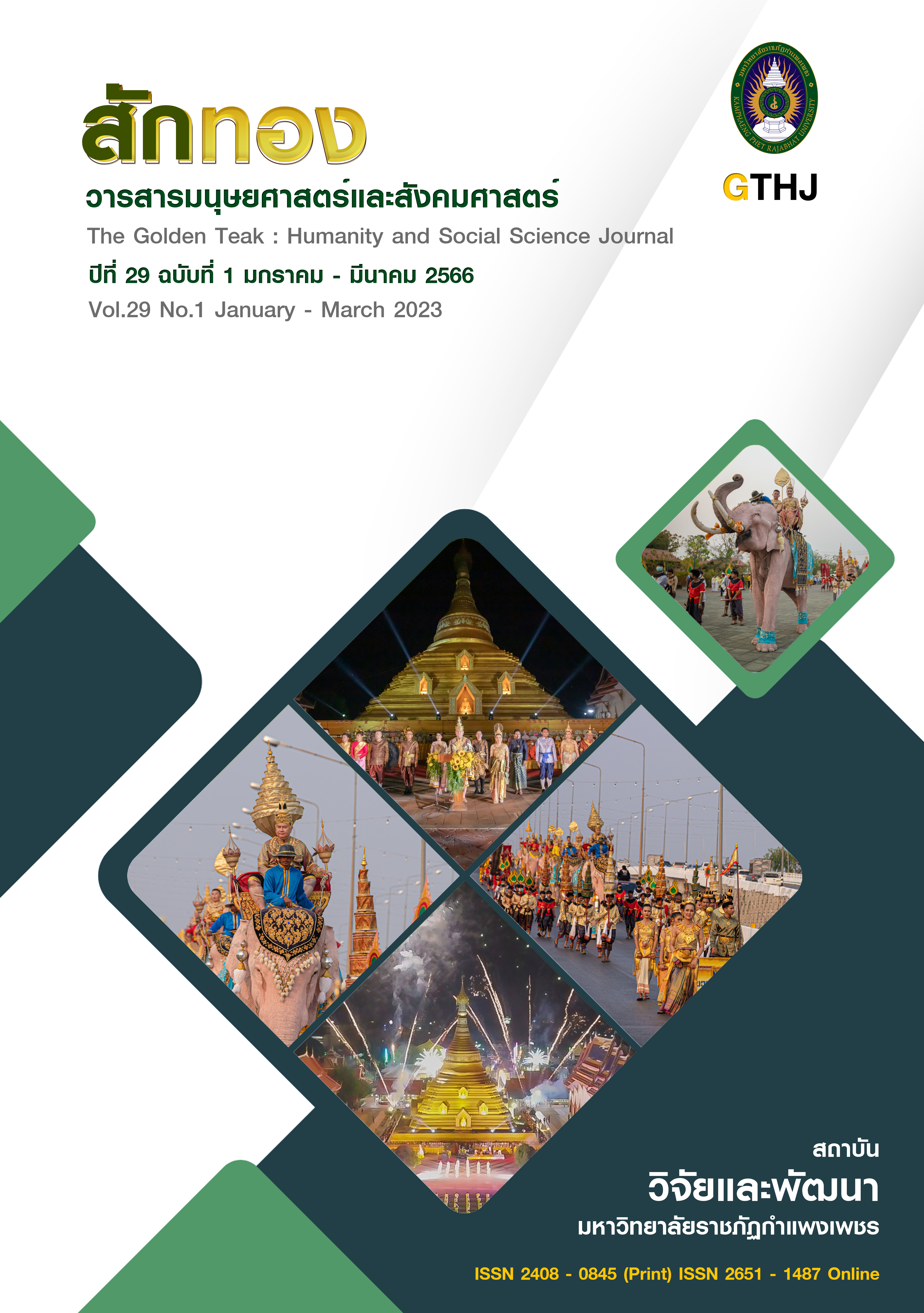The Learning Directions of Thai Children in the New Normal
Main Article Content
Abstract
In a world full of rapid changes, education is accelerated to change over time with a variety of factors, even without the “Corona virus 2019” as the catalyst for Thai education, which needs to be completely transformed. Therefore, it is not a crisis that encourages the education community and all stakeholders, including teachers, parents, students, administrators, academics and all sectors to adjust paradigms, processes, and ways of thinking to survive only but also an opportunity to review challenges to move forward using lessons from international adapted to fit our real context. The learning management model of educational institutions used in the Covid-19 Situation during the semester is on site learning management, which uses this format primarily by mixing with other forms, namely, learning management via television (On-air), learning management via online (Online), learning management by home visits (On hand), which the management style is different according to the conditions of the area by the risk of infection for online learning management, there are different platforms to use. We can understand the processes within the human body that are organized into an open system, which is the mediator between stimuli and response. It is what makes teaching design so profound that it can go deeper into the internal processes that lead to the foundation of design that can promote learning or that can support it. Or facilitate the cognitive processes that occur within in understanding what is being studied Shows a deep understanding should be understood deeply. Until the theory can be put into practice.
Article Details

This work is licensed under a Creative Commons Attribution-NonCommercial-NoDerivatives 4.0 International License.
บทความที่ได้รับการตีพิมพ์เป็นลิขสิทธิ์ของวารสาร สักทอง : วารสารมนุษยศาสตร์และสังคมศาสตร์ สถาบันวิจัยและพัฒนา มหาวิทยาลับราชภัฏกำแพงเพชร
ข้อคิดเห็นใดๆ ที่ปรากฎในวารสารเป็นวรรณกรรมของผู้เขียนโดยเฉพาะ ซึ่งมหาวิทยาลัยราชภัฏกำแพงเพชรและบรรณาธิการไม่จำเป็นต้องเห็นด้วย
References
Bronfenbrenner, U. (1979). The ecology of Human development: Experiments by nature and design. Cambridge, MA : Harvard University Press.
Bronfenbrenner, U., & Morris, P.A. (2006). The bioecological model of human development. In R.M. Lerner (Ed). Handbook of child psychology: Vol 1 Theoretical models of human development (6th ed., pp. 793-828). Hoboken, NJ : John Wiley & Sons.
Chaicharoen, S. (2011). Educational Technology: Principles, Theory, and Practice. (2 nd ed.). Khon Kaen : Nana Wittaya Treasury. [In Thai]
Chaowakeeratiphong, T. & Wongnaya, S. (2020). Guidelines to Develop Digital Citizenship of Students at the Faculty of Education, Kamphaeng Phet Rajabhat University. The Golden Teak : Humanity and Social Science Journal. 26(4), 72-85. [In Thai]
Education Council Secretariat Ministry of Education. (2021). Study report on learning management model for students in basic education affected by the COVID-19 situation. Bangkok : Bureau of Education Standards and Learning Development, Office of the Education Council Secretariat Ministry of Education. [In Thai]
Good., T.L., & Brophy, J.E. (1990). Basic concept of motivation. In T.L. Good & J.E. (Brophy (Eds.). Educational Psychology : A Realistic approach. 4 th ed. (pp. 1423-1437). New York : Longman.
Kowtrakul, S. (2013). Educational Psychology. (11 th ed.). Bangkok : Chulalongkorn University Press. [In Thai]
Johnson., W., McGue, M., & lacono, W. G. (2006). Genetic and environmental influences on academic achievement trajectories during adolescent. Development Psychology, 42(3), 514-532.
Klausmeier., H.J. (1985). Educational psychology. (5 th ed.). New York : Harper & Row.
Loftus., E.F., & Loftus, G.R. (1980). On the performance of stored information in the human brain. American psychologist, 36, 409-420.
Marieb, E.N. (2015). Essentials of Human Anatomy & Physiology (Eleventh edition). USA : Pearson Education Limited.
Mikelionis, L. (2015). Start-up culture is corrupting our youth and killing real entrepreneurship. [Online]. Available : http://www.telegraph.co.uk/technology/ 11765609/start-up-culture-is-corrupting- out-yo uth- and-killing-real-entrepreneurship.html [2015, July 27].
National Scientific Council on the Developing Child. (2010). Early experiences can after gene expression and affect long term development: Working paper No.10. Center on the Developing Child at Harvard University. [Online]. Available : http://www.developingchild.net [2015, July 27].
Neisser, U. (1976a). Cognition and reality: principle and implication of cognitive psychology. San Francisco : Freeman.
Patitat, P. (2019). Systematic thinking and creative thinking. Bangkok : Chulalongkorn University Press. [In Thai]


